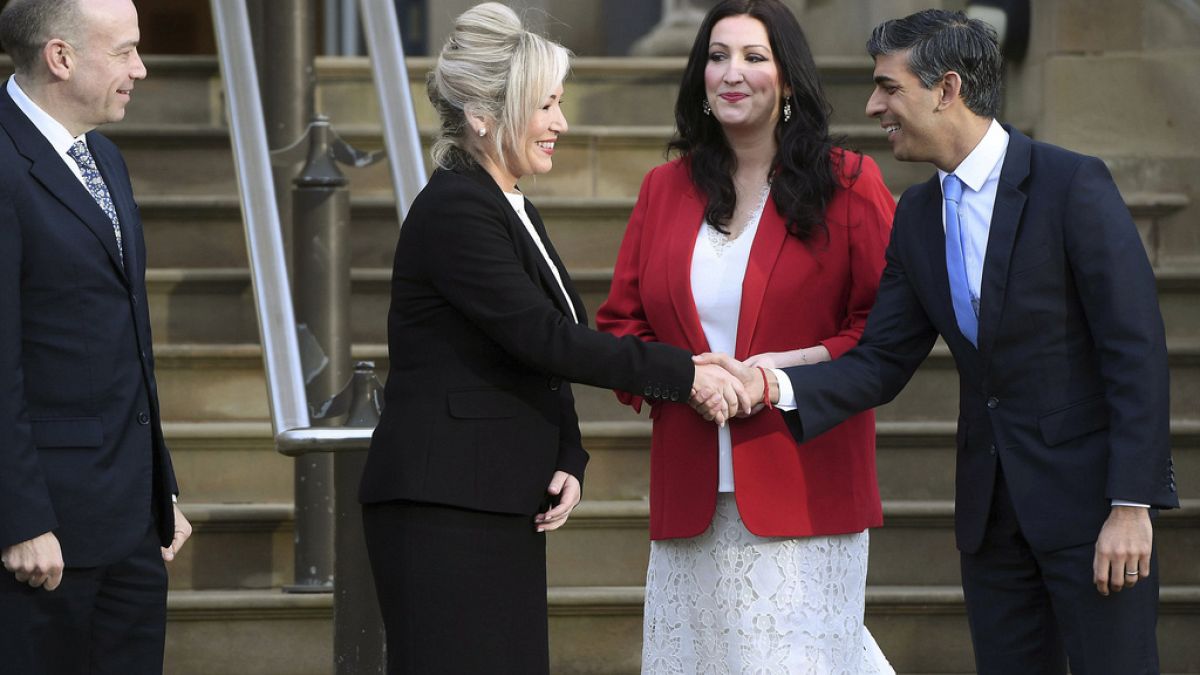Prime Minister Rishi Sunak and Irish Taoiseach Leo Varadkar visited Stormont on Monday to mark the return of power-sharing in Northern Ireland.
The leaders of the UK and Ireland went to Belfast Monday to meet Northern Ireland’s newly revived government and bask in a good-news moment after two years of political crisis.
British Prime Minister Rishi Sunak and Irish counterpart Leo Varadkar were visiting the new administration at Belfast's Stormont Castle as its ministers met for the first time. The ministers wasted no time before pressing London for more money to patch up Northern Ireland’s creaking public services.
The visits came two days after members of the Northern Ireland Assembly appointed a power-sharing government following a two-year hiatus that was sparked when the main British unionist party walked out in February 2022.
The Democratic Unionist Party boycotted the administration to protest post-Brexit trading arrangements that it said undermined Northern Ireland’s place in the United Kingdom. The party was coaxed into returning last week after the UK promised to eliminate most checks on goods moving to Northern Ireland from the rest of the UK.
Under power-sharing rules established as part of Northern Ireland’s peace process, the administration in Belfast must include both British unionists and Irish nationalists. The UK and the Republic of Ireland both have roles as guarantors of the peace.
The new administration is led by First Minister Michelle O’Neill of Sinn Fein, the party allied with the Irish Republican Army during Northern Ireland’s decades of violence known as “The Troubles.” Her appointment was historic, marking the first time an Irish nationalist, who aspires to take Northern Ireland out of the UK and unite it with the republic, has held the post.
In practice, nationalists and unionists will continue to govern in uneasy balance. The post of deputy first minister held by Emma Little-Pengelly of the DUP is officially equal to the first minister, and neither can govern without the other.
The DUP boycott had left Northern Ireland’s 1.9 million people without a functioning administration to make key decisions as the cost of living soared and backlogs strained the creaking public health system.
The UK government has agreed to give Northern Ireland more than €3.5 billion as part of an incentive to restore the government. Already, the Belfast administration says it’s not enough.
Little-Pengelly said the ministers in Belfast would be “seeking to ensure the UK government provides sufficient funding in a package to fulfill its promises on public sector pay.”
Chris Heaton-Harris, the UK's Northern Ireland secretary, said the package is more than enough for the time being.
